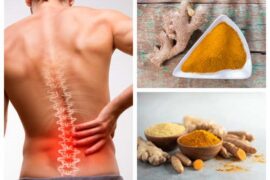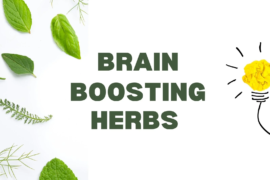Ayuveda Approach to Paediatric Neurology
In Ayurveda, the neurological diseases are correlated to Vata vyadhis and in Ayurveda Pediatrics (Kaumarabhritya), these are considered as Samvardan vikaras with Vata dosha involvement.
The awareness on pediatric neurological diseases is increasing with rising challenges of treatment. People are trying to seek treatment and therapy interventions. Currently, integrative treatment interventions for pediatric neurology has better hope with Ayurveda, Physiotherapy and Yoga, which is very much focused at I-AIM’s Pediatric Unit. This unique combination of treatment and therapy interventions undoubtedly provide marked changes in childrens’ quality of life and a greater impact on symptoms, thus assuring a ray of hope for children and parents.
Neurological disorders are seen as vata-vyadhis, i.e. movement (vata) and disorders (vyadhis). Ayurveda focuses on correcting:
AGNI (chemical pathway for biological/ physiological activities) – Most of the neurological symptoms in children originate in the gut. Ayurveda aims at agni deepan (gut streaming or correction ).
DHATUs ( body tissues) – Dhatu poshana (nourishment) is an essential process for promoting normal growth and development.
SROTAS (functional channels and pathways) help for Dhatu poshana in growing children.
MANAS (neuronal pathway) – Well-connected mind supports growth with Neuro development.
Neurological disorders are due to malfunctioning of vata
Vata controls movement functions of the body
- Motor and Sensory functions are primary functions of Vaata
- Specific sub types of vata has control over specific functions like digestion, motor functions (flexion or forward bending, extension, reflexes), contractions, relaxation and sudden movements.
- Functions of urinary bladder, colon and rectum
General Ayurvedic Principles underlying Management of Vata vyadhis
- Deepana pachana (regulation of GIT)
- Shodhana (drug delivery system to reach CNS )
- Medhya (nootropics)
- Rasayana / Brihmana and Balya (Nutritive and immuno modulators)
Outline of Ayurveda Management:
Type of Panchakarma procedures employed
- Abhyangam or oil application
- Sweda or medicated fomentation: SSPS-Navarakizhi, PPS-Elakizhi, Bashpa sweda, Nadi sweda
- Dhara or pouring of medicated liquids- Dhanyamla, Taila dhara
- Pichu or tampoon application- Sthanika and Shiro Vasthi
- Basti or medicated enema therapy- Musthadirajayapana vasti- Matra vasti
- Nasyam or nasal therapy- Pratimarsha
Probable Mode of Action by Ayurvedic treatments
Abhyanga and Shashtikashali Pinda Sveda
Skin and gut are the seats of Vaata
Abhyanga and Shashtikashali Pinda Sveda are considered for mitigating Vata in treating neurological conditions
MODE 1
Cutaneous stimulation dilates the arterioles and increases circulation; assists venous and lymphatic drains and enhances the transdermal drug absorption and assimilation. Relieves the muscular fatigue and reduces stiffness.
MODE 2
Skin with its rich sensory nerve endings, on stimulation gives abundant sensory inputs to the
cortical and other centers in CNS which in turn stimulates the CNS.
Vasthi
- Drug are administered through rectum (vasti dravya)
- These cross the rectal mucosa and stimulate the enteric nervous system (ENS) – “The brain of the Gut”.
- Stimulates the mesenteric and sub mucosal plexus of gut.
- It integrates sensor information from mucosal receptor and organizes an appropriate motor response stimulating CNS.
Effect of Mustadi Raja yapana Basti
- Vaata dosha is correlated to nervous system and Yapana Basti has Vatahara and
rasayana effect and can be administered for a longer duration.
- The gut contains 100 million neurons, more than that of in the spinal cord. Major
neurotransmitters like serotonin, dopamine, glutamate, norepinephrine and nitric
oxide are in the gut.
- Gut also has two dozen small brain proteins, called neuropeptides.
- ENS works in synergism with the CNS.
- Stimulation with Basti leads to activation of concerned part of CNS which precipitates the result accordingly.
Effect of Ayurveda and Integrative Treatments
The treatment relieves the muscular fatigue and reduces stiffness, ENS works in synergism with the CNS, cause sensory inputs and stimulates CNS thus influencing Amygdaloidal complex, Hypothalamus, Epi-thalamus and anterior thalamic nuclei parts of basal ganglia. Ayurveda has simple, non invasive treatment modalities which are essential in pediatric category.
Since the year 2014 at I-AIM’s paediatric unit, a special focus was made to treat Pediatric Neuro diseases like Autism Spectrum Disorders, Cerebral palsy, Global Develomental delay, Duchen’s muscular dystrophy, Down’s syndrome, Neuro degenerative conditions etc. Since then, around 460 cases/ childern have approached I-AIM from all over Karnataka, other states of India and also from overseas (USA, UK, Belgium and other countries).
Integrative Care in Pediatric neurology
Sequencing of management with multidisciplinary, integrative healthcare approach, along with supportive care through Physiotherapy,Yoga, Speech therapy, Occupational and Behavioural therapies are of immediate benefit.
The majority of neurological manifestations involving brain matter or neurons persist with outstanding symptoms or disease related consequences due to the non-regenerative capacity of neurons.
Note: Ayurveda has simple, non invasive treatment modalities which is
essential in pediatric category. Preliminary treatment results at I-AIM are promising with magical outcomes.
Get in touch with us for more information and appointment bookings.



